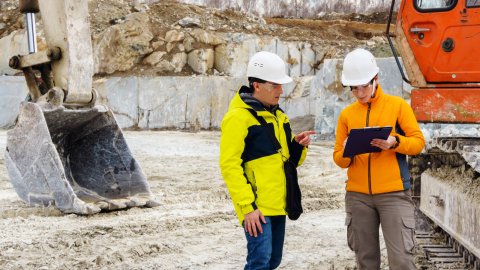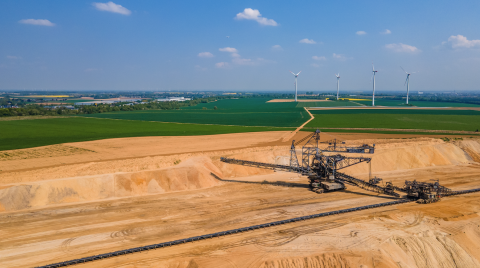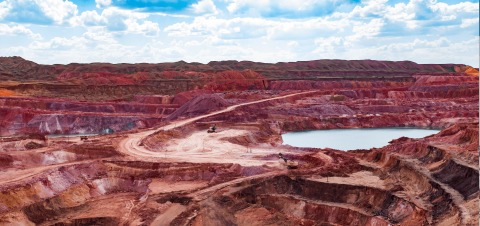
Improving Community Participation in Natural Resource Governance
Improving Community Participation in Natural Resource Governance
In the Philippines, communities can be involved in developing social and community programs with extractive companies' support, such as the construction of schools, hospitals and roads. Communities are then involved in monitoring the terms of contracts and making sure programs are fully delivered. In order to do this, access to timely, relevant, and comprehensive data and contracts is key. Equally important is understanding what the data means. These components are vital for community participation in natural resource governance.
Through the Philippine (PH) EITI Reports, relevant data is made available at a single source. Complementing the PH-EITI Reports is the extractives contracts portal[1] (http://contracts.ph-eiti.org). The Portal contains over 50 extractives contracts and supporting documents including mining project feasibility studies, and social and environmental monitoring reports, among others. These related documents are important to understand the mining contracts which typically follow a standard format. It is often in the related documents where there are the key elements and should be read alongside the contracts. In the Portal, the contracts are annotated for easier understanding. The site is searchable, and documents are machine readable. Prior to this, contracts were not public. Supporting documents were lodged in different government agencies in physical form.
As members of Multi-stakeholder Monitoring Teams (MMTs), civil society can assess the company’s compliance with environmental regulations. If a violation is committed, sanctions including suspension, may be carried out. MMT reports are disclosed through the Philippine extractives contracts portal. Citizens who are not MMT members can also conduct parallel assessments to validate reports.
Citizens can also validate if the mandatory Social Development and Management Program (SDMP) allocations are followed and are aligned with the local development plans of the community. The SDMP is intended to contribute to “sustained improvement in the living standards of host and neighboring communities by creating responsible, self-reliant and resource-based communities capable of developing, implementing and managing community development programs, projects, and activities in a manner consistent with the principles of sustainable development[2]”. The SDMP reports may also be found in the contracts portal. Bantay Kita (BK) conducted an assessment of SDMPs and found that it runs the risk of duplicating local government projects. In this respect, BK asserts that it would be more efficient if SDMPs complement the local development plans.
By referring to coordinates of an approved mining area as reflected in a contract, communities can potentially check if the mining activities are within the agreed boundaries.
Bantay Kita has used information in mining feasibility studies to conduct fiscal modeling. Results can help Indigenous Peoples and local governments determine if it is beneficial to have mining companies operate in their areas; and if so, to ensure that they get a fair share.
BK informs communities of relevant data in the Portal and helps them so that they can validate company reports, make meaningful decisions regarding natural resource management, and demand accountability.
Though strides have been made towards increased transparency in extractive resource management through PH-EITI and the contracts portal, it remains wanting. There is still a lack of access to timely, complete, reliable, and accurate data on auxiliary rights awarded to mining companies and social and environmental monitoring reports, among others. This is may be attributed to several factors including the lack of coordination between regional and central government offices and across bureaus, weak record keeping and file format issues, among others. The Mines and Geoscience Bureau (MGB) National Office claims that updated documents like MMT Reports are available in its regional offices. However, there is slow transfer of information and documents from the regional to the national office. This hampers timely submission of reports. The MGB is improving its database management system to address this.
Auxiliary rights granted to mining companies include allowable amounts of water and timber consumption and entry into private lands, among others. Data on the matter is in government’s possession but have yet to be publicly disclosed. Being unaware of such rights granted to mining companies often becomes a source of conflict. Issues of land grabbing and displacement, and illegal logging abound in mining operating areas.
Beyond access to relevant data, increased capacity, a platform for genuine multi-stakeholder engagement, credible selection process of civil society representatives in MMTs and other mining oversight committees, accountability within civil society and its representatives, and the freedom and trust to confidently engage in such platforms are necessary to improve resource management.
In the Philippines, licenses and permits in mining are granted on a first come first served basis. In the future, we hope to see greater transparency in processes, clear criteria for providing permits and licenses; and more opportunities for citizen engagement in the whole extractives value chain, particularly in the planning stage. We also hope to see a public registry of beneficial owners. We believe that having such a registry will level the playing field, increase trust, curb corruption and illicit financial flows, and limit the use of influence for undue advantage.
Beyond extractives-related data, BK encourages proactive disclosure of information. To bolster calls for increased transparency and citizen participation, BK also uses the Open Government Partnership. An informed community is an empowered community.
Further information:
The Philippines has been a prime mover in governance initiatives. The country is a founding member of the Open Government Partnership (OGP). The OGP is a multilateral initiative that aims to make governments more transparent, accountable and responsive to citizens. In 2012, shortly after the establishment of the OGP, the Philippines joined the Extractive Industries Transparency Initiative (EITI).
Bantay Kita (BK) has been an active partner in the Philippines’ journey towards improved extractives governance. BK is a national civil society coalition aimed at advancing transparency and accountability in the extractive industries through research, capacity building and advocacy. The coalition is a Philippine EITI MSG member and a commitment holder in the OGP for EITI Compliance. It is also a Publish What You Pay affiliate.





